Venturing through any D&D mythical campaign, you will find that magic, in and of itself, is an integral part of the unbelievable experience. There’s just something truly enchanting about being able to wield arcane forces to cast spells and manipulate the world around you. Magic is specialized in certain classes and many subclasses. So, familiarizing yourself with the schools of magic is essential.
Dungeons and Dragons 5th edition consist of eight distinct schools of magic, each belonging to its own category of spells and abilities. The eight schools of magic are:
- Abjuration
- Conjuration
- Divination
- Evocation
- Enchantment
- Illusion
- Necromancy
- Transmutation
Each school of magic brims with excitement inspiring many truly unique ways to shape the world around them. Whether you’re new to D&D or already a spell-slinging veteran looking into your next build, this guide gives some excellent insights into the nature of each school following the 5th edition players handbook.
So, let’s journey through each school of magic and let the mystical adventure begin!

Exploring The Eight Schools Of Magic In D&D 5E
Magic is an absolute power in the D&D universe, shaping the very fabric of reality itself. Understanding the different schools of magic in the 5th edition player handbook (on page 203) is crucial to mastering the arcane and unlocking your full potential, especially as a player.
This goes doubly so for any of the spellcasting classes, but even players who aren’t traditional spellcasters will want to understand the difference between chasing down an evocation wizard versus a necromancer, for example.
Or if you are planning a feat-heavy character, many of these feats like the Fey Touched Feat or Shadow Touched Feat each give one specific spell but then give a spell from a specific school of magic. And as all D&D players who have played with magic can tell you: not all schools of magic are equal especially depending on your style of play.
So, grinding up the basics in 5E, there are eight distinct schools of magic, each with unique flavor and abilities.
Here’s a quick roundup of each school:
- Abjuration: Specializes in protective spells and shielding against harmful effects, a type of magic that every adventuring party appreciates.
- Conjuration: Focuses on summoning friendly creatures or objects from other planes of existence immediately prepared to aid the caster and their allies.
- Divination: Specializes in uncovering information and seeing the future before it comes to be, allowing them to manipulate the very fabric of fate.
- Evocation: Deals with manipulating and channeling raw magical energy to create powerful spells that do serious damage on the battlefield.
- Enchantment: Focuses on charming and manipulating other creatures’ minds and emotions as well as imbuing magical power into an otherwise mundane object.
- Illusion: Specializes in creating realistic illusions and deceiving the senses, sometimes at levels that can even result in real damage coming from an illusory being.
- Necromancy: Deals with death and undeath, including raising undead creatures and draining life force, common magic of Necromancers and Clerics alike.
- Transmutation: Focuses on transforming matter and altering the properties of objects or creatures, shifting it from one state of being into another.
It’s crucial to remember that characters can acquire magic in many ways in D&D use it. The big two are divine and arcane magic, with the former coming from deities or nature and the latter obtained through study, performance, natural happenstance, or gifts from arcane beings.
Now, deciding where your character’s magical powers come from is important to think about, as this can have significant implications in the game world not to mention the ways you would want to roleplay your character.
Choosing spells is also crucial to defining your character’s playstyle and personality. How you cast spells, and the schools of magic you select can shape how others perceive you and affect your interactions with the world.
- For example, your deity may frown upon certain spells, or your character’s use of magic may draw unwanted attention or suspicion from authorities or you may find yourself in a land that worships the natural order and how hate necromancy magic – even resurrection from Clerics.
So, now that you have a basic idea, we’ll dive deeper into each school of magic, exploring their unique abilities and strengths. So no matter what approach you have to D&D, here you will find that each school has something fascinating to teach you with some intriguing examples of unique spells.
Now let’s begin our journey through the mystical arts!
1. Adjuration: Shielding Magic For Protection And Defense
In combat, staying alive depends more on defense than anything else. That’s where abjuration magic comes in – a school of magic that focuses on protection and shielding.
Abjuration spells are intended to defend against various threats and be “more tank” towards physical attacks to magical effects. One of the defining features of abjuration magic is its metaphysical approach towards protection, either for you or you and your party.
Some Noteworthy Spells In Abjuration
Many abjuration spells create shields or barriers that can absorb damage or prevent harm. Are you looking to play an abjuration mage? Then you’ll want to focus on spells to help you defend yourself and your allies, often even under challenging situations.
Consider the following abjuration spells to keep you and your party safe:
- Mage armor: Create a magical protective force around a willing creature who isn’t wearing armor, giving them a base AC of 13 + their Dexterity modifier for 8 hours. Crucial early spell for spellcasters who need to find a way to defend themselves from the occasional hit.
- Shield: Creates an invisible barrier around you as a reaction when an attack hits you or is targeted by a magic missile spell, increasing your AC by five until the start of your next turn.
- Protection from Energy: A spell that grants a willing creature resistance to one type of damage (acid, cold, fire, lightning, or thunder) for up to an hour – situationally extremely useful.
- Glyph of warding: Inscribe a glyph on a surface or within an object that can store a spell of 3rd level or lower and trigger it when certain conditions are met. This is a spell that can be used creatively and to devastating effect.
- Greater restoration: End one effect on a creature that reduces its ability scores, hit points maximum, levels of exhaustion, petrification, or curses.
And spells to counter enemy attacks like:
- Counterspell: Use reaction to stop a spell within 60ft. Ability check if the spell you want to counter is higher than the 3rd level, and one of the most powerful reaction spells in the entire Player’s Handbook.
- Dispel magic: End one spell within 120ft. Requires an ability check if the spell you want to dispel is higher than the 3rd level
- Hold person: Paralyze one humanoid within 60ft for a minute, a very powerful spell that also has strong utility uses.
- Banishment: Send one creature within 60 feet to another plane for a minute, for when you really, REALLY don’t want to deal with a problem.
Spells like mage armor, shield, and protection from energy can all be vital in keeping you or your allies safe. But abjuration magic isn’t just about defense. It also includes banishing and binding spells, which can be used to remove enemies from the battlefield or restrict their movements.
And Spells like banishment, hold person, and glyph of warding can all be powerful tools in the right situation. In fact all three of these spells have been used to devastating effect by player and DM alike in many of our 5th Ed campaigns.
One of the strengths of abjuration magic is its versatility. For example, the counterspell spell allows you to cancel out an enemy’s spellcasting. At the same time, Dispel magic, and Greater restoration can be used to remove harmful magical effects.
Classes And Deities For Abjuration
Abjuration can be an excellent school for various classes, including wizards (who would be known as an abjurer), clerics, and paladins.
- Wizards are perhaps the most natural fit for abjuration magic, as they can access the broadest range of spells.
- Clerics and Paladins can also make great abjurers, as their divine magic can be used to protect and heal their allies.
Abjuration magic is often associated with gods of protection and defense.
- Bahamut, Helm, and Torm are all popular choices for abjuration-focused characters. But any deity who values protection and defense could be a good fit.
So if you want to stay alive in combat, consider adding some abjuration spells to your arsenal. With the right spells and tactics, you can turn your enemies’ attacks against them while also being both a potential supportive lifeline to the party and a “magical tank.”
As with abjuration, the best offense is a good defense!
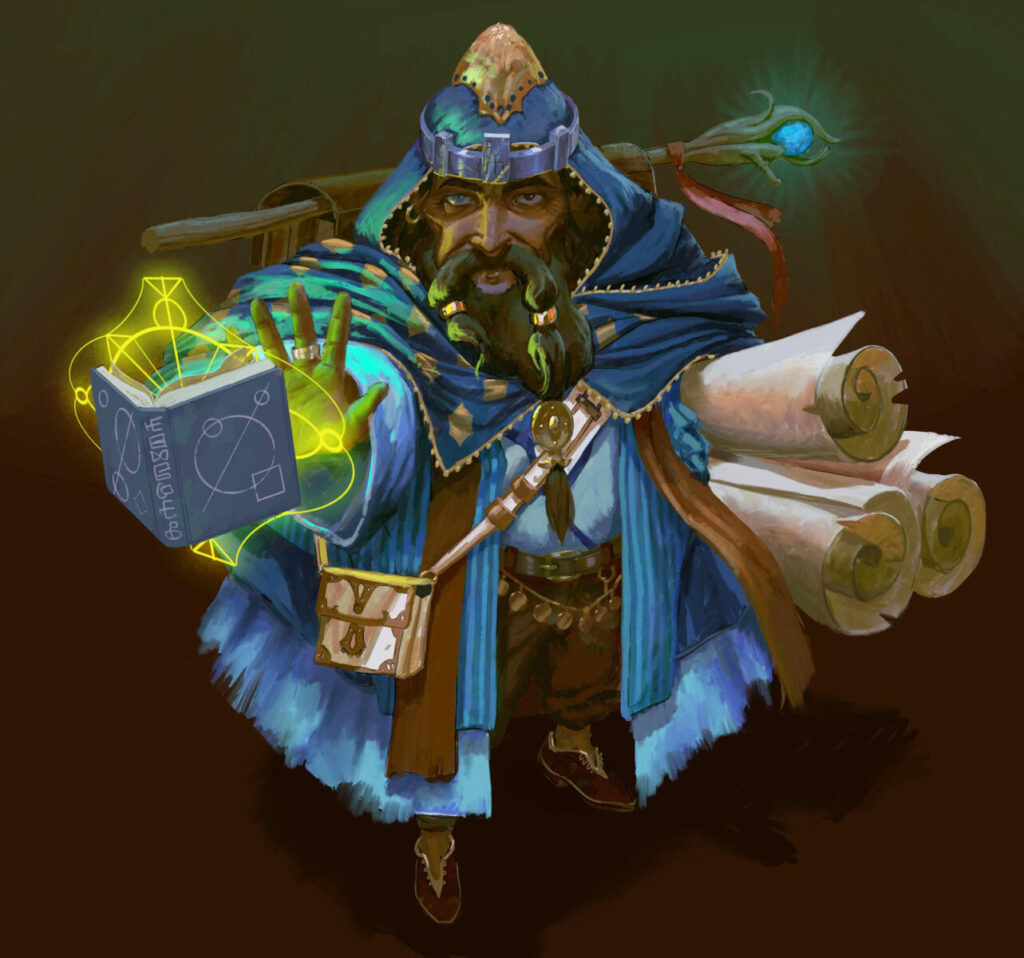
2. Conjuration: Magic Of Summoning And Creation
The School of Conjuration is a unique form of magic specializing in transporting creatures and objects from one location to another. It is particularly fun for those who enjoy creating things out of nothing while also having fun with the idea of teleportation. This school is also responsible for teleportation spells and focuses on longer-lasting effects compared to other schools of magic.
Some Noteworthy Spells In Conjuration
Conjurers use their spells to create objects, creatures, effects, or locations out of thin air. They are often seen as explorers and adventurers who can travel across planes and dimensions. Some Noteworthy Spells In Conjuration Many conjuration spells allow you to bring forth allies or items that can aid you in combat or other situations.
Are you looking to play a conjuration mage? Then you’ll want to focus on spells that help you manipulate space and time, often even beyond reality.
Consider the following spells to enhance your versatility and creativity:
- Mage hand: Create a spectral hand that can manipulate objects within 30 feet for a minute. Favorite of Wizards, Bards, and Arcane Trickster Rogues alike.
- Find familiar: Summon a spirit that takes the form of an animal companion for an indefinite duration, most commonly seen with warlocks but not exclusively limited to them.
- Misty Step: Teleport up to 30 feet to an unoccupied space as a bonus action, and incredibly useful spell used by a variety of casters.
- Conjure animals: Call forth up to eight beasts of your choice within 60 feet for an hour
- Dimension door: Teleport yourself and one willing creature within 500 feet to a spot you can see or visualize. Great for when you need a sudden escape.
And spells to bend reality like:
- Wish: Among the most powerful spells in the game; Wish can alter reality according to your desire with possible consequences as determined by the DM and often a luck roll to see how sideways potential things can go.
- Summon greater demon: Invoke a fiend from the Abyss within 60 feet for an hour at the risk of losing control over it
- Gate: Create a portal between two planes that can transport creatures or objects for a minute
- Steel wind strike: Dash through space and make melee spell attacks against up to five creatures within 30 feet
Spells like find familiar, conjure animals, and find greater steed can all help provide you or your allies with loyal companions. But conjuration magic isn’t just about summoning. It also has teleportation and creation spells, which may be used to move across the battlefield or create goods practically anywhere and at any time.
And spells like misty step, dimension door, and wish can all be extraordinary abilities in the right situation. One of the strengths of conjuration magic is its creativity. For example, the mage hand spell allows you to manipulate objects with a spectral hand.
At the same time, summoning greater demons and gates can be used to bring forth powerful entities from other planes.
Classes And Deities For Conjuration
Conjuration can be a fascinating choice for various classes, including wizards, sorcerers, and warlocks.
- Wizards are particularly well-suited to the conjuration school, as they can access multiple spells. At
- Sorcererscan specialize in summoning magical creatures or teleportation.
- Warlocks can also be effective conjurers, often focusing on summoning otherworldly beings or objects.
Conjuration magic is often associated with gods of travel and commerce.
- Avandra, Hermes, and Shaundakul are popular choices for conjuration-focused characters. But any deity who values travel and mobility can also be considered.
So if you want to travel the planes, summon creatures to fight for you, or just teleport yourself and your party to safety, consider adding conjuration spells to your spellbook. You can turn the battlefield into a playground of summoned beasts and magical portals with the right spells and advantages.
The saying goes, why walk when you can conjure your way there?
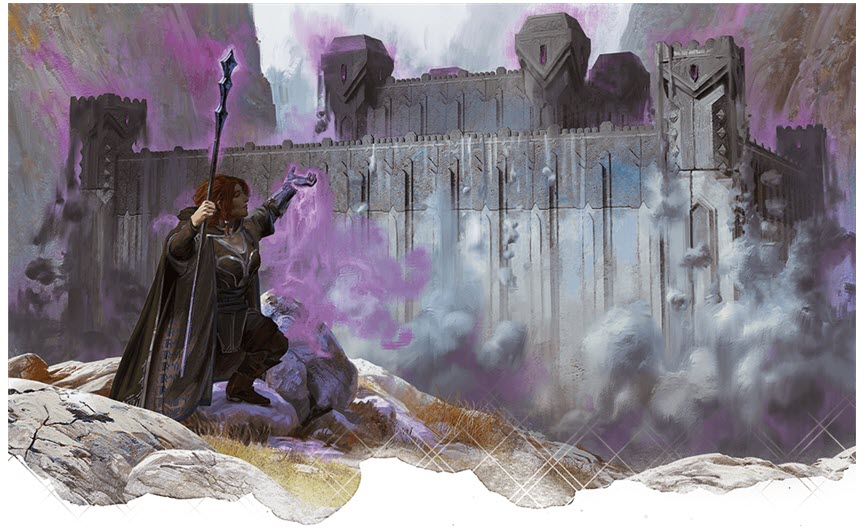
3. Divination: Magic Of Knowledge And Prediction
Divination is an exceptional form of magic that focuses on gaining knowledge about the past, present, and future. This school certainly suits players whose playstyles enjoy unraveling mysteries and gaining insights into people’s lives. Divination is also responsible for spells that protect against future harm and may guide you toward the best possible outcome.
Some Noteworthy Spells In Divination
Diviners use their spells to gain insight into the unknown, whether it be information about a person, place, or thing. They are often seen as wise and knowledgeable individuals with a deeper understanding of their world. Spells in this school often allow you to learn about your enemies or allies or influence your destiny.
Are you looking to play a divination mage? Then you’ll want to focus on spells that provide you with information or help you manipulate fate.
Consider the following spells to enhance your versatility and wisdom:
- Detect magic: Detect magic within 30 feet for up to 10 minutes, classic useful spell.
- Identify: Determine the magical properties of a single item within touching range
- Augury: Determine the outcome of a specific course of action within the next 30 minutes
- Scrying: Observe a creature or location that you are familiar with for up to 10 minutes
- Commune: Ask your deity three questions that can be answered with a yes or no
And spells to manipulate fate like:
- True strike: Just kidding. I know this is the worst spell in all of 5th Edition D&D – but just wanted to see if you were still paying attention.
- Portent: Re-roll a d20 roll made by you or a creature you can see once per day
- Foresee future: Get a glimpse of what the future holds for you or someone else
- Contingency: Set a condition for a spell to be cast in the future automatically
You can do plenty with spells like detect magic, identify, and scrying, providing you with valuable information that can aid you in combat or other situations.
Divination magic can also protect you from harm or ensure the best possible outcome for a crisis. Spells like portent and contingency can be game-changers in the right situation, allowing you to manipulate fate to your advantage.
Classes And Deities For Divination
Divination can be fascinating for various classes, including wizards, clerics, and druids.
- Wizards are particularly well-suited to the divination school, as they can access multiple spells.
- Clerics can specialize in divination spells that provide them with insights into the future or their enemies.
- Druids can use divination magic to gain knowledge about the natural world and to protect it from harm.
Regarding deities, divination magic is often associated with gods of knowledge and prophecy.
- Mystra, Oghma, and Savras are popular choices for divination-focused characters. But any deity who values knowledge and foresight could be a good fit.
So if you want to uncover hidden truths, manipulate fate, or protect yourself from harm, consider adding some divination spells to your spellbook. With divination magic, you can become a wise and insightful individual with a deeper understanding of the world.
Going down this route, you will find that information is power, and with divination magic, you’ll be the ultimate information broker. No secret is safe from you!

4. Evocation: Elemental Control And Energy Manipulation
Evocation is all about controlling magical energy to produce the desired effect. Wizards specializing in this school are the masters of harnessing the elements, calling forth blasts of fire or lightning to rain down destruction upon their enemies. But evocation magic isn’t just about destruction. It also includes spells that can heal wounds or buff allies with positive energy.
Some Noteworthy Spells In Evocation
Evokers use their spells to channel the power of the elements, unleashing devastating spells that can decimate foes or bolster allies. They are often seen as powerhouse spellcasters, dealing massive damage with their spells.
If you’re looking to play an evocation wizard, you’ll want to focus on spells that manipulate the elements to damage or heal wounds.
Consider the following spells to enhance your destructive power and versatility:
- Fireball: Create a ball of fire that explodes, dealing damage to everything within a 20-foot radius. Classic blaster caster D&D spell that does serious AOE damage.
- Chain lightning: Send a bolt of lightning that arcs to multiple targets, dealing damage to each one. Extermely useful precision damage spell when your allies are too mixed in for a fireball.
- Healing word: Speak a word of healing energy that restores a creature’s health – classic healing spell.
- Wall of fire: Create a wall of flames that deals damage to anyone who passes through it. Favorite of many Clerics.
- Sunburst: Create a burst of sunlight that deals radiant damage to enemies and blinds them also messes up the undead in serious ways.
And spells to control the elements like:
- Control water: Bend water to your will, moving it or creating tidal waves
- Wall of ice: Create a wall of ice that can block attacks and freeze enemies
- Earthquake: Shake the ground beneath your enemies, dealing damage and knocking them prone
- Tsunami: Create a massive wave that crashes down on your enemies, dealing damage and knocking them back
Destructive spells like fireball and chain lightning can be devastating in combat, while healing word can keep your allies in the fight. Also, control water and wall of ice can help you turn the tides on the battlefield.
Classes And Deities For Evocation
Evocation can be a powerful choice for various classes, including wizards, sorcerers, and clerics.
- Wizards are particularly well-suited to the evocation school, as they can access multiple spells.
- Sorcerers can specialize in blasting enemies with elemental energy or healing allies with positive energy.
- Clerics of gods associated with the elements, such as Kossuth or Talos, may also dabble in evocation magic.
Evocation magic is often associated with gods of the elements and destruction.
- Kossuth, Talos, and Auril are popular choices for evocation-focused characters. But any deity who values the power of the elements could also be a viable option.
So if you want to rain down destruction upon your enemies or heal your allies with positive energy, consider adding some evocation spells to your spell book. Depending on how you play, you can control the elements to create devastating effects on the battlefield.
Who needs a mundane weapon when you can wield the power of the elements to unleash the wrath of the heavens?
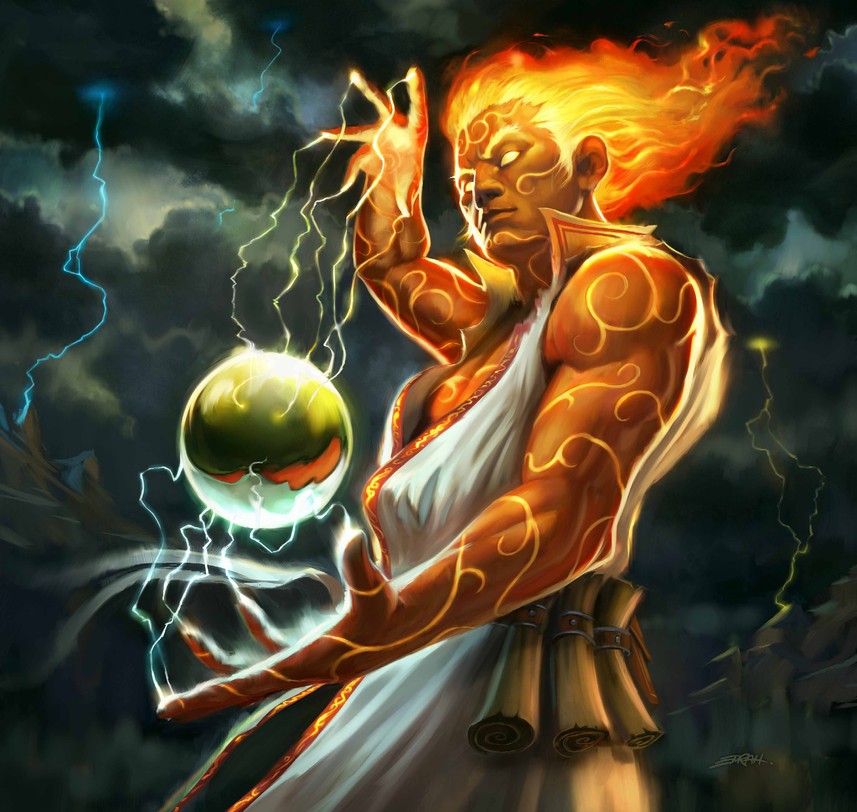
5. Enchantment: Art of Manipulation and Influence
Enchantment is a distinctive form of magic specializing in influencing or controlling the behavior of others. It is an excellent choice for players who enjoy manipulating and charming opponents while also having fun with the idea of mind control.
This school is responsible for spells that can make foes see the caster as a friend, control another beast like a puppet, or even force creatures to take a path of action.
Some Noteworthy Spells In Enchantment
Enchanters use their spells to manipulate the minds of others, often influencing their behavior or controlling their actions. They are often seen as manipulators and persuaders who can change the course of an encounter with a few well-placed spells. Some noteworthy spells in Enchantment include:
- Friends: Charm a creature for a duration and gain an advantage on Charisma checks against them
- Charm person: Charm a humanoid for a duration and make them regard the caster as a friendly acquaintance
- Geas: Compel a creature to undertake a task or suffer damage for a duration
- Hold person: Paralyze a humanoid for a duration and make them unable to take actions or reactions
- Dominate person: Control a humanoid for a duration and make them follow the caster’s commands
Enchantment spells can be used in various ways, such as gaining information, pacifying enemies, or even turning foes into allies. They can also be used for nefarious purposes like coercion, blackmail, or even assassination.
Classes And Deities For Enchantment
Enchantment can be a fascinating choice for various classes, including bards, sorcerers, and wizards.
- Bards are particularly well-suited to the Enchantment school, as they can use their Charisma-based spells to manipulate and charm others.
- Sorcerers can specialize in mind control and manipulation, often focusing on subtle spells that can sway the thoughts and actions of others.
- Wizards can also be effective Enchanters, often using their vast knowledge to find creative ways to influence and control others.
Enchantment magic is often associated with gods of charm and trickery.
- Lolth, Mask, and Sune are popular choices for Enchantment-focused characters. But any deity who values manipulation and charm can also be considered.
So if you want to charm your way out of a problematic situation, control your enemies’ minds, or just influence those around you, consider adding Enchantment spells to your spell book. So, why fight when you can charm your way to victory?

6. Illusion: Deception, Trickery, And Misdirection
Illusion is a unique school of magic that is all about manipulating the senses and thoughts of others. It may even be considered best for players who enjoy deceiving others and pulling off elaborate hoaxes.
This school is responsible for spells that create phantom images and illusions that can deceive any creature, often leading to confusion and misdirection – which can be extremely valuable in and out of combat.
Some Noteworthy Spells In Illusion
Illusionists use their spells to create images, sounds, and other sensory effects that trick the minds of their targets. They are often seen as cunning tricksters and spies who can deceive their enemies and avoid detection.
Some noteworthy spells in Illusion include:
- Minor Illusion: Create an imaginary image or sound within 30 feet for a minute
- Silent image: Create an illusory image of an object, creature, or scenery within 60 feet for up to 10 minutes
- Invisibility: Make yourself or a creature within range invisible for up to an hour
- Major image: Create a moving, illusory image of an object, creature, or scenery within 120 feet for up to 10 minutes
- Phantasmal force: Create an illusion that can cause damage and other effects to a target’s mind for up to a minute
Illusion spells can be used in countless ways, from distracting enemies and hiding allies to creating false impressions and causing confusion. Illusionists often use their spells creatively while also using them unexpectedly to achieve their goals.
Classes And Deities For Illusion
Illusion magic can be a fascinating choice for various classes, including wizards, bards, and rogues.
- Wizards are particularly well-suited to the Illusion school, as they can access multiple spells and have a vast repertoire of spells to choose from.
- Bards also make excellent Illusionists, as they have access to various spells and can use their abilities to charm and deceive others.
- Rogues are known for their ability to deceive and sneak around, making them natural candidates for the Illusion school in an arcane trickster subclass.
Illusion magic is often associated with gods of trickery and deceit.
- Loki, Mask, and Olidammara are popular choices for Illusion-focused characters, but any deity who values cunning and misdirection could be a good fit.
So, if you want to trick your enemies, hide from danger, or create elaborate illusions to deceive others, consider going down the path of the Illusion school of magic. You can turn the battlefield into a playground of deception and misdirection. Remember, not everything is as it seems when dealing with an Illusionist.

7. Necromancy: Dark Art of Death and Undeath
Necromancy delves into the mysteries of life and death. It’s all about manipulating the energies of the living and the dead, using spells to drain life force or grant a reserve of it. Necromancers are often viewed suspiciously, and many consider their practices unnatural and disturbing.
This school is responsible for spells that create and control the undead, from skeletons and zombies to more powerful creatures like mummies and vampires. Some necromancy spells can even bring the dead back to life, though it’s known to be a challenging and rare feat that often comes at a great cost.
Some Noteworthy Spells In Necromancy
Necromancers use their spells to control and manipulate life and death in various ways. Some noteworthy spells in Necromancy include:
- Chill Touch: A ghostly skeletal hand that not only damages but can also produce a double whammy by prevent healing.
- Animate Dead: Raise corpses as undead creatures to serve the caster’s will, a spell any necromancer will be very familiar with.
- False Life: Grant temporary hit points to the caster.
- Death Ward: Protect a creature from death for a short time.
- Resurrection: Bring a creature back to life from death, one of the most important spells for heroes who have a prophecy to fulfill and hit a misstep or two along the way.
From bolstering oneself and allies to decimating foes with armies of the undead, Necromancy can be an entertaining school to dive into. Necromancers often use their spells in a calculated manner, considering the risks and rewards of each action.
Classes And Deities For Necromancy
Necromancy magic can be a potent choice for various classes, including wizards, warlocks, and sorcerers.
- Wizards are the most common practitioners of Necromancy, with many specializing in the school and using their spells to control and manipulate undead creatures.
- Warlocks also make effective Necromancers, as their spells can grant them control over life and death in unique ways, often making pacts with otherworldly beings.
- Sorcerers can also dabble in Necromancy magic, using their innate power to control the energies of life and death.
Necromancy magic is often associated with gods of death and the underworld.
- Nerull, Wee Jas, and the Raven Queen are popular choices for Necromancy-focused characters, but any deity who values the manipulation of life and death could be a good fit.
Necromancy could be right for you if you’re interested in learning more about the eerie aspects of magic and dabbling in the mysteries surrounding life and death.
You can control armies of undead creatures, drain enemies’ life force, and even bring things back from the brink of death. Whatever troubles you find down this path, you at least always have a bone to pick with your enemies!
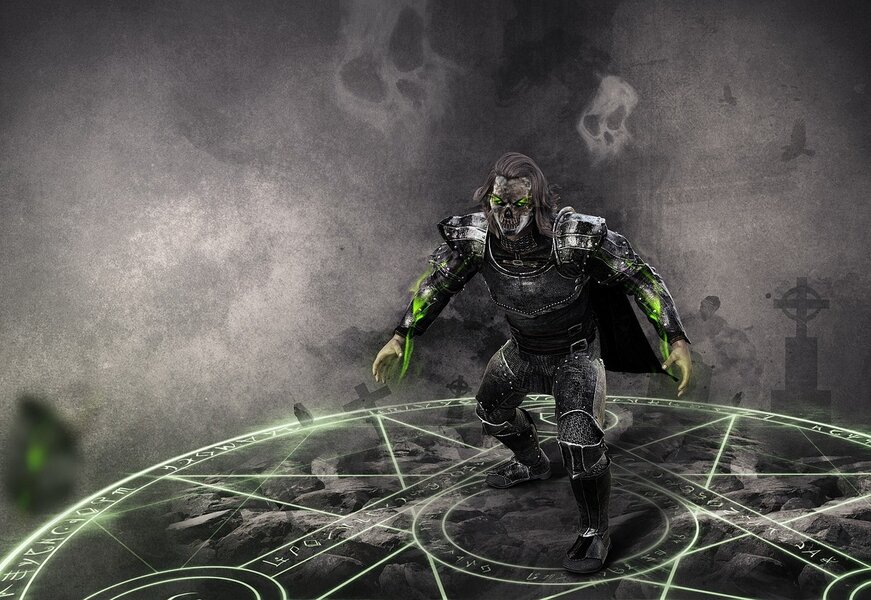
8. Transmutation: The Magic of Transformation and Change
Transmutation is a fascinating school about changing the nature of creatures, objects, and the environment. Players specializing in this magic can transform their enemies into harmless creatures, modify the properties of things, and enhance their allies’ abilities. Those who wish to bend reality to their will often seek transmutation magic.
Some Noteworthy Spells In Transmutation
Transmutation spells are incredibly diverse, ranging from transmuting an object into another object to changing the properties of creatures.
Some noteworthy spells in Transmutation include:
- Polymorph: Transform a creature into another form for up to an hour
- Enlarge/Reduce: Increase or decrease the size of a creature or object for up to a minute
- Alter Self: Change your appearance and other physical characteristics for up to an hour
- Passwall: Create a passage through a solid object for up to an hour
- True Polymorph: Transform a creature or object into a different creature or object permanently
Transmutation spells can be used in so many ways, like escaping tight spots by transforming into a tiny creature or turning a non-magical item into a powerful magical item. Wizards specializing in Transmutation magic often approach problems creatively, using their spells to solve various challenges.
Classes And Deities For Transmutation
This school is an excellent choice for those who wish to specialize in the art of alchemy and transformation.
- The Wizard class is particularly well-suited to this school of magic, as they can access a vast array of spells and choose the ones that best suit their needs.
- Druids and Clerics who worship deities associated with change and transformation might also specialize in Transmutation magic.
Transmutation magic is often associated with gods of change and transformation.
- Deities such as Boccob, Mystra, and Garl Glittergold are popular choices for Transmutation-focused characters, but any deity who values change and transformation can be considered.
So, if you want to manipulate the environment and bend reality to your will, the Transmutation school of magic might be perfect for you. You can transform yourself, your allies, and the battlefield to achieve your goals.
Remember, with Transmutation magic, the possibilities are endless.
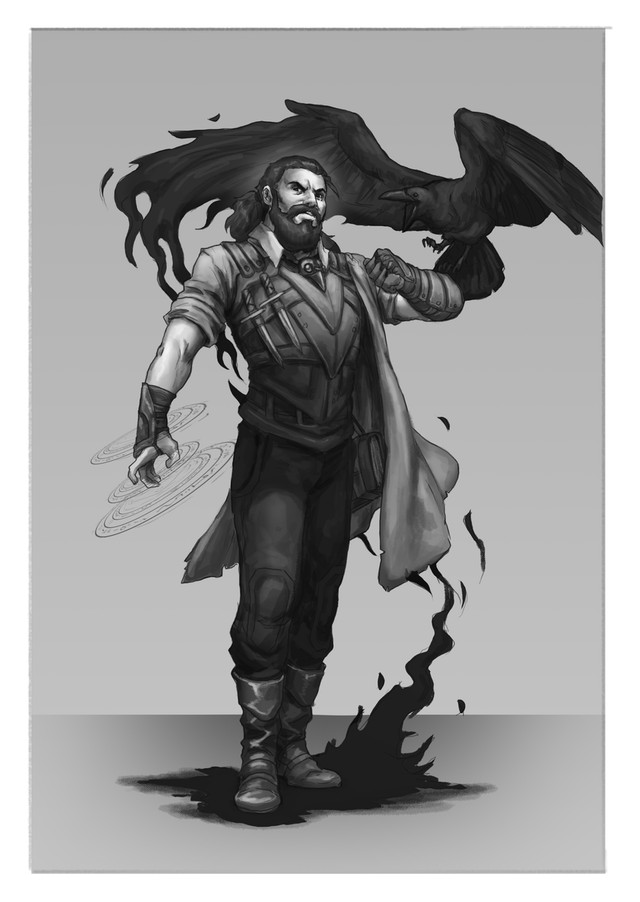
5E DnD Schools of Magic Concluded
There is no “best school” in D&D 5E, only what suits your playstyle best. Each school of magic offers a unique approach both in and out of combat, giving players a wide range of options. Whether you prefer to blast fireballs, manipulate minds, or change creatures and objects, each path leads to an endless array of possibilities.
When it comes to magic, there are so many ways of studying, of manipulating reality, and of creating a specialist caster who has their own flavor and abilities that will keep them memorable.
So choose the magic that speaks to you and bring your character to life in new and exciting ways!
Other D&D Articles You May Love!
- Full Conditions Guide DnD 5E
- 5E DnD Feats
- Neutral Alignment Guide DnD
- Neutral Good Alignment Guide DnD
- 5E DnD Damage Types
References
- D&D 5th Edition Players Handbook on Schools of Magic: anyflip.com
- Forgotten Realms Fandom: forgottenrealms.fandom.com
- D&D Masters Guide: anyflip.com
- 5E PDF Copy

Proud to embrace the locally created moniker of “Corrupt Overlord” from one of the all time great Lords of Waterdeep runs, Shane is one member of the Assorted Meeples crew and will be hard at work creating awesome content for the website. He is a long-time player of board games, one time semi-professional poker player, and tends to run to the quirky or RPG side of things when it comes to playing video games. He loves tabletop roleplaying systems like Dungeons & Dragons, Pathfinder, Werewolf, Fate, and others, and not only has been a player but has run games as DM for years. You can find his other work in publications like Level Skip or Hobby Lark.
